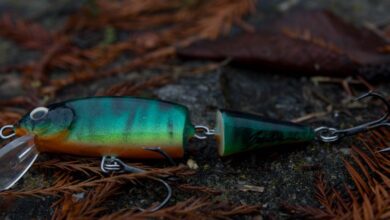How to Choose Effective Weed Removers
Weeds can be a gardener’s worst nightmare, invading lawns and flower beds with their relentless growth. These unwelcome plants not only detract from the beauty of your garden but also compete with your cherished plants for nutrients, water, and sunlight. Choosing the right weed remover can make all the difference in maintaining a healthy and aesthetically pleasing garden. With so many options available, it’s crucial to understand the types of weed removers and their effectiveness.
Types of Weed Removers
When selecting a weed remover, it’s essential to understand the different types available. They generally fall into three categories: chemical, natural, and mechanical.
Chemical weed removers, often referred to as herbicides, work by targeting specific plant systems. These products can be quite effective, especially for large infestations. However, they can pose risks to the surrounding environment, potentially harming beneficial insects, pets, and nearby plants. Always read the label carefully to understand the active ingredients and their potential impact.
Natural weed removers are gaining popularity among environmentally conscious gardeners. These products often include ingredients like vinegar, salt, or essential oils. While they can be effective for smaller infestations or young weeds, they may not provide the same level of control as chemical options. Moreover, natural solutions may require more frequent application, especially after rain.
Mechanical weed removers include tools and equipment designed to physically remove weeds from the garden. Hand tools like hoes and weeders are common choices for small gardens, while larger areas may benefit from equipment like tillers or cultivators. While mechanical methods can be labor-intensive, they offer the advantage of being chemical-free, making them a safe option for families and pets.
Assess the Weeds
Identifying the type of weeds you’re dealing with is crucial in choosing the right remover. Weeds can be categorized into broadleaf, grassy, and sedge types. Broadleaf weeds, like dandelions, often require specific herbicides that target their unique structures. Grassy weeds, such as crabgrass, may need a different approach. A targeted approach not only increases effectiveness but also minimizes collateral damage to your garden.
Evaluate Your Garden’s Ecosystem
Before selecting a weed remover, consider the ecosystem of your garden. Are there beneficial insects, pets, or children playing in the area? If so, opting for natural or mechanical methods may be more suitable. Chemical herbicides can be effective but come with potential risks. Understanding your garden’s ecosystem will help you make an informed decision that balances weed control with environmental health.
Consider Timing and Weather
The effectiveness of weed removers can be influenced by timing and weather conditions. For chemical herbicides, applying them on a calm day with no rain forecasted for 24 hours can enhance their efficacy. Similarly, natural weed solutions often work best during warm, sunny days when the weeds are actively growing. Timing your applications correctly can make a significant difference in the results you achieve.
Check for Residual Effects
When choosing a weed remover, consider whether it leaves any residual effects in your garden. Some chemical herbicides can persist in the soil, affecting future plant growth. If you plan to plant new seeds or transplants shortly after application, look for products labeled as having no residual effects. On the other hand, natural solutions typically break down more quickly, making them safer for subsequent planting.
Evaluate Ease of Use
Lastly, consider the ease of use of the weed remover. Some products may require mixing or special application techniques, while others come ready to spray. If you have a larger garden or limited time, look for user-friendly options that can save you time and effort. A product that is easy to apply will encourage you to use it consistently, leading to better long-term results.
Making the Right Choice
Choosing an effective weed remover involves understanding your specific needs, the types of weeds present, and the overall health of your garden’s ecosystem. By evaluating the options and considering factors like timing, ease of use, and potential residual effects, you can select a weed remover that not only addresses your weed problems but also aligns with your gardening philosophy. Taking the time to choose wisely will pay off in the form of a healthier, more vibrant garden.







